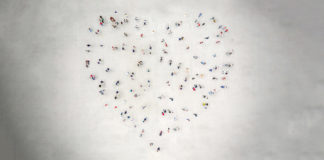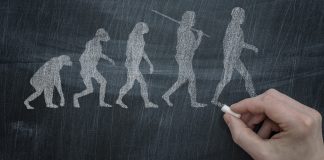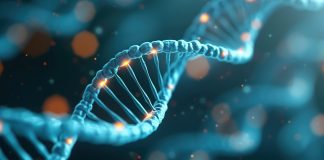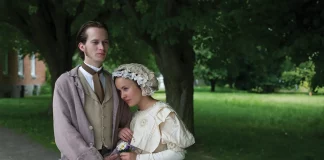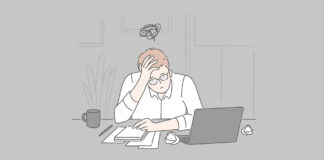Food for life
A lot is said and written about food, and a fair share of the promises we make are related to it. We might decide to eat more healthfully or perhaps we wish to diminish food waste. Unfortunately, our promises are often quickly forgotten, because destructive habits are hard to forsake. There are, however, people who have found ways to transform not just their...
Hungry for youth and immortality
Crouched in the trenches of the horror of old age, modern individuals no longer wish to recover anything from the natural ageing process that their ancestors practised with such serenity. On the contrary, the first signs of physical decline become the raw material for a wide range of efforts (from picturesque to sickly) to forge a youth that the mirror refuses to restore.
The little secret that carries us further
The TV-series Friends was recently reviewed in The New York Times as “enormously easy to watch”. This characteristic however does not make the show unique, nor can it account for its popularity today, more than 15 years since its final episode.
Dusty mirrors in a cynical world
In a cynical world, just as certain otherwise healthy nutrients could cause cancer, correct formulations develop cynicism because they are easily suspected of hypocrisy. In order to believe again, cynics need different, experiential perspectives.
Can God be removed from history?
“Is God dead?” was the question on the cover of Time magazine on April 8, 1966. Three-and-a-half years later (December 26, 1969), the publication changed that to: “Is God coming back to life?”
The paradox of independence: freedom at the cost of connection
The controversial story of Baruch Spinoza takes on a fascinating dimension with the explosive excommunication from the Jewish community decreed by the leaders of the Portuguese Sephardic community in Amsterdam—a decision accompanied by one of the most severe anathemas. This document made Spinoza one of the most reviled philosophers by both Jews and Christians, but attitudes towards him began to change after the...
The pretext of ignorance is sold in different styles
Atheist evolutionists accuse Christians of offering explanations that blame everything on God when they have no other answer. In other words, God has become a pretext for ignorance. Without denying the fact that sometimes this is true, reality also has other facets.
February 24, 2022 | The night that changed everything (I)
My husband and I realised that the inevitable had happened; rumours of a war in Ukraine had intensified in the previous month.
Daniel: on the pedestal of history
On the pedestal of history, holding the flame of freedom—that's how the Book of Daniel has stood since it first appeared, more than 2500 years ago, and how it continues to stand today. It is a divinely inspired introduction to the book of Revelation, and together they represent the extension of the gospel beyond the apostolic generation up until the return of Christ,...
Getting your kids to do chores
You wouldn’t think so, but whether or not children do chores is one predictor of their future happiness and success.
Biography of a dilemma
"If anyone, then, knows the good they ought to do and doesn’t do it, it is sin for them" (James 4:17).
The driving forces of evolution
Even those least familiar with evolutionary theory know that it involves a powerful driving force: natural selection. However, as we delve deeper into the theory, we find that things haven't been that simple for a long time. This is because we no longer consider natural selection the sole engine of evolution, and from a certain point of view, not even the most powerful...
From heartache to hopeful
It’s not hard to misinterpret the Bible. I’ve done it, most people I know have done it and if you’ve read it enough, I’d bet you’ve done it too. It isn’t surprising then, that throughout history many have misinterpreted the Bible, especially when it comes to complex ideas like the end of the world and Jesus’ second coming.
COVID-19: What we have (not) missed during the lockdown
Life in lockdown had an atypical rhythm and texture. While for some this upset their daily lives, for others it was an unexpected response to an unspoken need.
The secrets of a successful failure
Few books about management can be read with as much pleasure as a novel, because few are as pleasantly written. Donald Keough's book[1] falls within this exclusive bracket. It is a book about business management and, strangely, was written for people who want to fail in this field, but do not know how.














